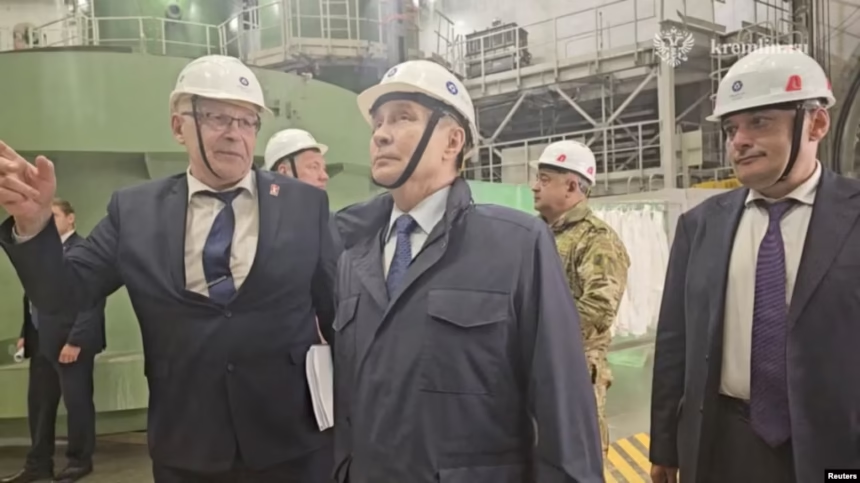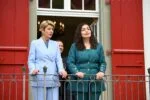Russian President Vladimir Putin made a surprise visit to Russia’s Kursk region on Wednesday, at a time when he faces growing criticism for allegedly delaying peace negotiations with Ukraine.
This marks Putin’s first visit to Kursk since Russian forces repelled Ukrainian troops from parts of the region last year following a bold incursion by Kyiv. State television showed Putin meeting with local residents and interim Governor Aleksander Khinshtein.
Context of the Visit
The visit comes amid mounting accusations that Putin is deliberately dragging out negotiations in an effort to gain more territory and strengthen Moscow’s position at the negotiating table.
Last week, Russian and Ukrainian negotiators met face-to-face for the first time in over three years, attempting to end Europe’s deadliest conflict since World War II.
However, progress was minimal, prompting U.S. President Donald Trump to hold a two-hour phone call with Putin on May 19, which ended with a promise from Moscow to prepare a memorandum outlining preconditions for a ceasefire — a move seen by many analysts as a Kremlin tactic to stall.
International Reactions & Sanctions
- U.S. Secretary of State Marco Rubio stated in a Senate hearing on May 20 that Trump has not imposed new sanctions on Russia, believing it’s important to keep diplomatic channels open.
- Meanwhile, the EU and the UK announced new sanctions on Russia, with Brussels already planning a new round of “massive” penalties.
Kremlin’s Response
The Kremlin denied accusations of stalling, with spokesperson Dmitry Peskov telling reporters that “everyone is working dynamically toward a resolution.”
Despite Trump’s push for a 30-day ceasefire, which Ukrainian President Volodymyr Zelensky has accepted, Putin has not agreed, demanding that Kyiv:
- Recognize Russia’s annexation of occupied Ukrainian territories,
- Undergo demilitarization, and
- Adopt a neutral political status.
What’s Next?
Putin’s unannounced visit to Kursk — a region once under partial Ukrainian control — appears designed to:
- Project confidence and control domestically, and
- Reinforce his strategic positioning in international diplomacy.
But with Trump’s direct involvement, growing European pressure, and little movement from Moscow, the path to peace remains highly uncertain.







